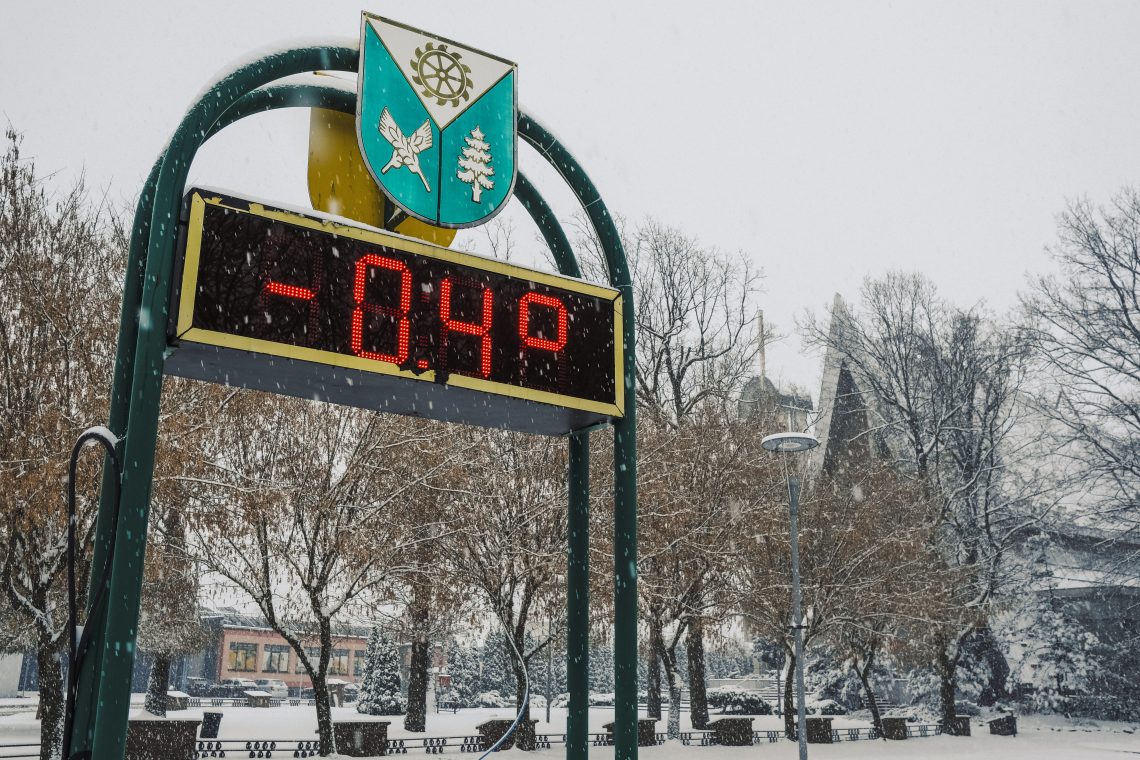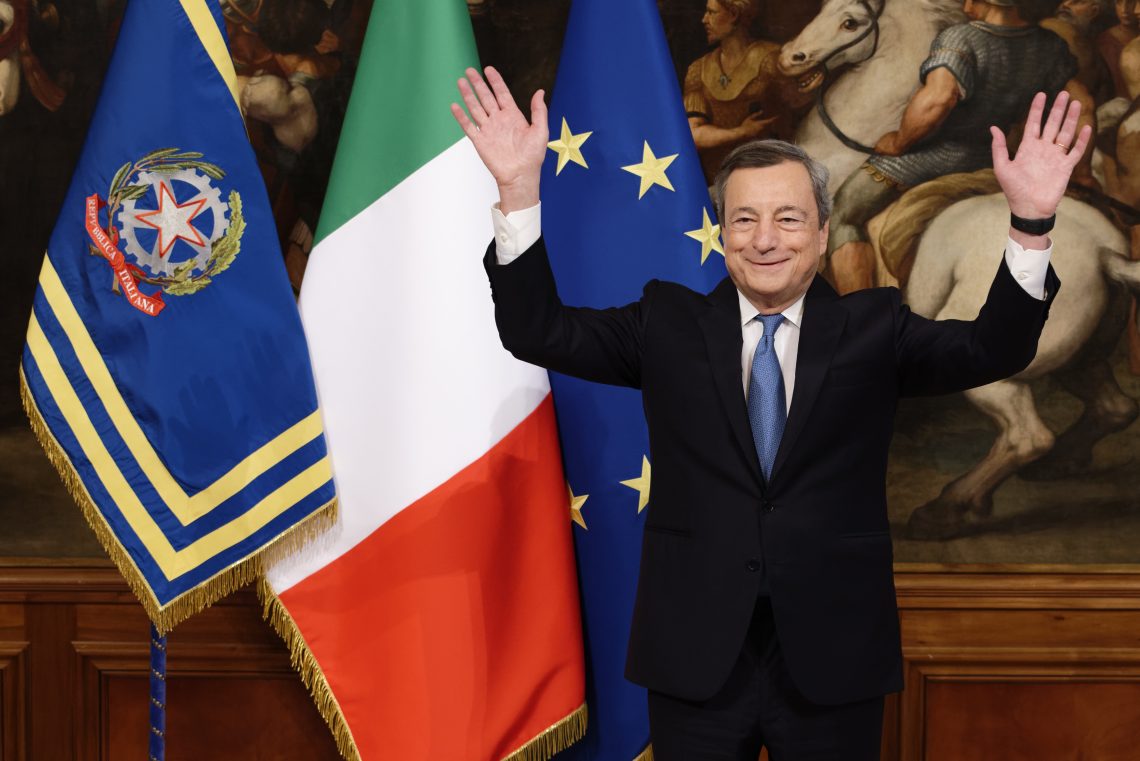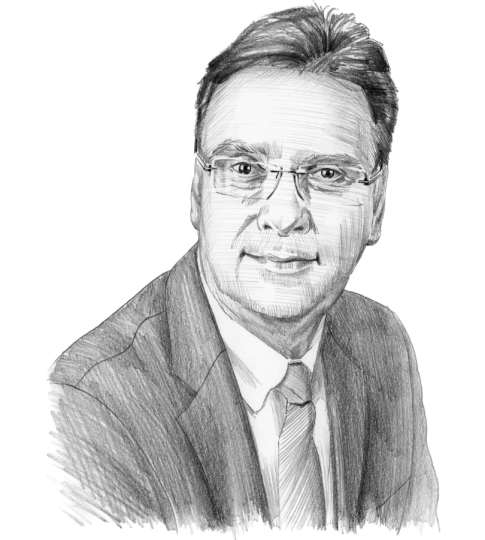With the EU’s energy crisis, integration has again fallen short
The difficulties facing European energy markets are the latest demonstration that joint rules without joint enforcement cannot succeed.

In a nutshell
- The EU’s financial, migration and energy crises have fit a pattern
- Integration is often designed with only good outcomes in mind
- Failing to prepare EU institutions for the worst will lead to more difficulties
For those who follow events in Europe, there is a sense of deja vu about the present energy crisis: the same old story, just in a different market.
The same utter dismay at the collapse of something that had been working so well and so cheaply for so long it went unnoticed. This time, it is the supply of energy commodities to the integrated European market.
When the prices or supply of a good decline without warning, countries compete to intervene more quickly and aggressively than their rivals, they race to spend, cap, regulate, redistribute, protect and hand out more than the rest – in short, to best “look after their own.” It is a no-win situation because citizens of every country will still feel that things are being done better elsewhere and that their neighbors are getting more.
Under pressure from voters, politicians come up with costly, complicated national solutions. They simultaneously try to agree on a Europe-wide arrangement – one that will save their bacon by shifting at least part of the responsibility, blame and costs to others.
Integrating for good times
This same script played out during the migration crisis and the Covid-19 crisis, and before that, the European financial crisis. We saw the same images, the same scenarios and the same consequences.
It turns out there is something systemic at play. Each such crisis is exacerbated and prolonged by a feature of the European integration project. The EU tends to integrate in good times and for good times, only when it is dry and sunny. We tend to build the house from the roof down, not from the foundations up.
It is not that these projects have bad ideas. They are simply not prepared for events going badly wrong, like contracts without fail-safe clauses. In the Wild West, gunfighters knew that if a brawl broke out in a saloon, a sheriff would come to sort things out – one armed and empowered to do so.
But in many integrated European markets and areas, there is no sheriff. That became clear when the migration crisis hit the regime of the Schengen Area and Dublin Regulation. Ultimately, the only authorities with the power to close national borders were the national police or armed forces. This story repeated itself during the pandemic crisis.
The EU tends to integrate in good times and for good times, only when it is dry and sunny.
There was a similar cacophony of national solutions proposed at the onset of the financial crisis; recall then-German Chancellor Angela Merkel promising, in contravention of all existing regulations, to guarantee every deposit in German banks. That crisis stemmed from a failure to respect the common fiscal responsibility rules, which had no credible authority to enforce them.
The European Central Bank – a federal institution in a nonexistent federation – became the enforcer. Ultimately, everyone in the saloon believed Sheriff Mario Draghi and his legendary “whatever it takes” pledge. He carried enough ammunition to seem credible. However, the ECB is an exception, not the rule.
Other European institutions do not and will not have such authority. There is no single European people; EU citizens are hardly likely to form a federation. There is no EU country where voters support the end of their nation-state, with most having long regarded the election of their representatives in the European Parliament as a second or third-order election matter to which they pay little serious attention. To forge the EU into one state would mean denying the very democratic principles on which the bloc stands.
No free lunch
In the eyes of the public, the sheriffs are those at the national level: elected politicians, parliaments and governments. These are the ones who take the public ire when things go wrong. They are also expected to come up with solutions – even though, after years of EU integration, they often lack the knowledge, tools, resources or flexibility to react quickly and effectively.
Meanwhile, the integrated EU structure has become too complex for simple answers. And still, the more dramatic the situation, the more everyone demands simple answers. Everything is now interconnected; actions have unexpected and unintended consequences. The available solutions are either rapid but ruinous to common European interests or EU-wide but too slow.
To be sure, the rules facilitating the free movement of capital, goods and people have substantial benefits. But most of these projects create an illusion that they are free of any difficulties or tradeoffs. Diehard ideological supporters of European integration are adept at accepting this version of reality.

In truth, we pay for integration later – often at great expense, after hitting a wall, and without fully realizing the benefits we were getting all along. There is an asymmetry in national relationships with the European Union, one which should trouble even its most uncritical supporters. We take the good, spread over the long term, for granted. And we view the short-lived troubles as a total collapse of the system.
That is happening with energy today. The stepwise integration of the energy market over 20-plus years has no doubt lowered prices and improved service, thanks to greater competition. But it has also reduced incentives to invest in new energy sources and created the false impression that the market can withstand endless political interventions (such as decarbonization) with no consequences.
It cannot, least of all when hit by a war shock. This mode of thinking is like flooring the accelerator in a car with no airbags, convinced that nothing bad can happen. It might be cheaper and faster right until the moment of impact. But treating the injured costs much more than outfitting the car safely, all the more so when there is no common hospital.
Adapting to reality
Who is the sheriff today for the European energy market? There is none – no one who can intervene with sufficient resources on the energy exchanges in Leipzig and beyond, as there would be if a similar disaster were to strike at a national level.
We might someday see the same dynamic in the internal EU market if national policies for businesses diverge so much as to give the impression (whether wrongly or rightly) that one country is competing unfairly with the rest. Not even the European Commission, which oversees compliance with the single market rules, has enough tools or credibility to stop such disintegration and the introduction of import duties and other trade barriers. Its pistols are empty.
This author remembers fielding accusations from the “integration brigade” of practically being a traitor after stressing during the financial crisis that a proposed banking union would generate an intractable imbalance between national-level responsibility for the safety of deposits and pan-European powers to make decisions about banks.
The grand idea of a banking union is that banks will be able to move capital freely from subsidiaries to parents and back, thus optimizing its use on the single market. Each bank would be subject solely to common pan-European and group supervision.
That sounds fine, except banks are only supranational in the good times; in bad times, they are decidedly national. And the payment of deposit insurance claims and recapitalization is primarily national and especially sensitive. We do not have and will likely not establish a sensible European deposit insurance system. In a crisis, each country will mainly look after its depositors, not those sitting beyond its borders.
Since the financial crisis, the EU has in vain sought to devise a uniform system to allow burden-sharing across borders.
Until the financial crisis in 2008, the decentralized deposit insurance system worked in such a way that savers in, say, the Czech Republic who had their savings in a branch of an Austrian bank would have their deposits effectively insured in Austria – i.e., in another country. The financial crisis showed the failings of this system when governments in countries affected prevented the payment of deposits to savers abroad, as their national banks and deposit insurance systems ran into difficulties.
Since then, the EU has in vain sought to devise a uniform system to allow burden-sharing across borders, even when things go wrong. It is practically impossible to commit in advance that a system in one country will compensate depositors in another country without delay or that the funds of national deposit insurance schemes would be pooled together, with richer ones guaranteeing the deposits of the poorer. How deposit insurance could function in another crisis remains an open question.
The EU must, at long last, adapt the rules and depth of integration to these realities – not devise unrealistic plans ill-equipped for a crisis during which every country wants to keep funds at home. When deepening integration in the future, policymakers must consider the bad times in advance to have safeguards, crisis management tools, ex-ante burden-sharing mechanisms and enforceable sanctions for those who break the rules. In their absence, it is better to integrate more slowly or not at all. Neglecting it may be a sign that the architects of these programs do not take them entirely seriously.
If countries are unwilling up front to agree on these tough questions, they merely create illusory ideas that will not survive the next crisis. Without respecting this “golden rule” of integration, we are bound to repeat the same design flaws in the European project time and again.



